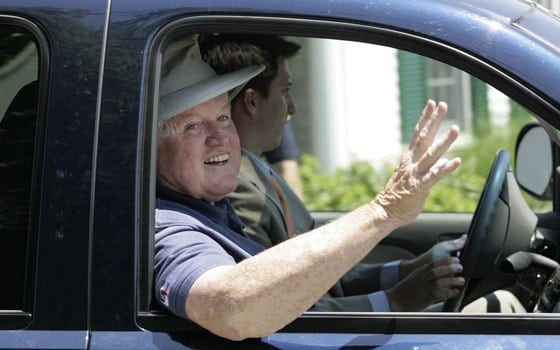Saying goodbye to the godfather of the community health center movement

It was fitting, in the way that these things sometimes happen in life, that I was at the National Association of Community Health Centers annual meeting when Senator Kennedy died. Senator Kennedy adopted the community health center (CHC) program early in his career, seeing it as an essential part of the larger battle against poverty, discrimination and poor access to health care.
In our focus on the challenge of the day — whether it be a patient care issue, a funding shortfall, a staffing question or exasperation with technology — we can lose sight of our history. CHCs started as part of the larger “War on Poverty,” as well as the civil rights movement. They were not seen as simply a way to expand medical services, but as part of the broader and more difficult plan to bring people out of poverty by offering programs in early childhood education, job training, legal services, health care and community organizing.
Senator Kennedy always saw CHCs from that perspective. I have heard him speak countless times about the work that we do, and every time, he pushed his audience to see the connection between good health care and the more basic of human rights. We were never just another provider type to him, but rather an active force for equality and for the lessening of suffering for the disadvantaged among us.
We can be especially proud at Harbor Health Services Inc. because it was a visit to the Columbia Point Health Center (now Geiger Gibson Community Health Center) that introduced him to our work and set him on the path of what was to be a 47-year crusade to expand care to millions of Americans through the establishment of community health centers. We were proud to bring him back, this time to Neponset Health Center in the 1980s, to personally witness the good work we were doing in that part of the city.
Before Senator Kennedy adopted CHCs as one of his causes, we were a small pilot program, an experiment in a new way of delivering care and part of a larger panel of programs being evaluated for their ability to break into the cycle of poverty. After his visit to Columbia Point, Senator Kennedy introduced a change in federal law that established CHCs as a permanent ongoing provider, set in place with the same status as hospitals and other providers. It is impossible to overstate how critical that change in law was to the fact that there are now thousands of CHCs in the nation.
I have worked in this field for 33 years. During those years, I have lived through times of great turmoil and sharp disappointment in the decisions and priorities of our government. President Reagan de-funded about 25 percent of the nation’s CHCs; President Ford tried to fold us into a state-controlled block grant with other health programs. Other administrations curtailed funding or made other decisions that greatly complicated our work.
During all of those battles, the National Association of Community Health Centers, of which I am an active member as vice chair of the Legislative Committee, turned to Ted Kennedy to go into the back rooms of Congress and work out a solution to protect us. Not once did he let us down.
Early in life, I made a decision that I wanted to work in a job that contributed to reducing poverty, inequality and suffering in our country. I realize that that kind of goal might sound a bit idealistic today, but there were many people my age who felt the same way then. In the 1960s, the mood in the country was charged with energy and commitment, a time when there was belief that we, as a people, could do better and should do better.
Ted Kennedy was one of a handful of public figures who was willing to do the hard work behind the scenes to push that agenda. I drew inspiration from him and worked in Maine and Pennsylvania on his 1980 presidential campaign. That campaign was not successful, but I cannot help but believe that having Ted Kennedy as a United States senator for 47 years was, ultimately, better for the country’s poor and disadvantaged than having him as president for four or even eight years.
Too often in life, we idealize a public figure, only to be disappointed and even angry when they reveal their human side. I have never been among those who worship the Kennedy family as American royalty. In my view, however, Ted Kennedy was the real deal. He was clear and unwavering in caring for those who needed a hand in life. And for the many of us who chose to work in pursuit of that idea, he was a true champion. Our work will be harder with him gone. He has earned my respect and the respect of many others who believe that working to improve life for all of God’s children is a noble endeavor.
Goodbye and God bless, Teddy.
Daniel J. Driscoll is the president and chief executive officer of Harbor Health Services Inc.






